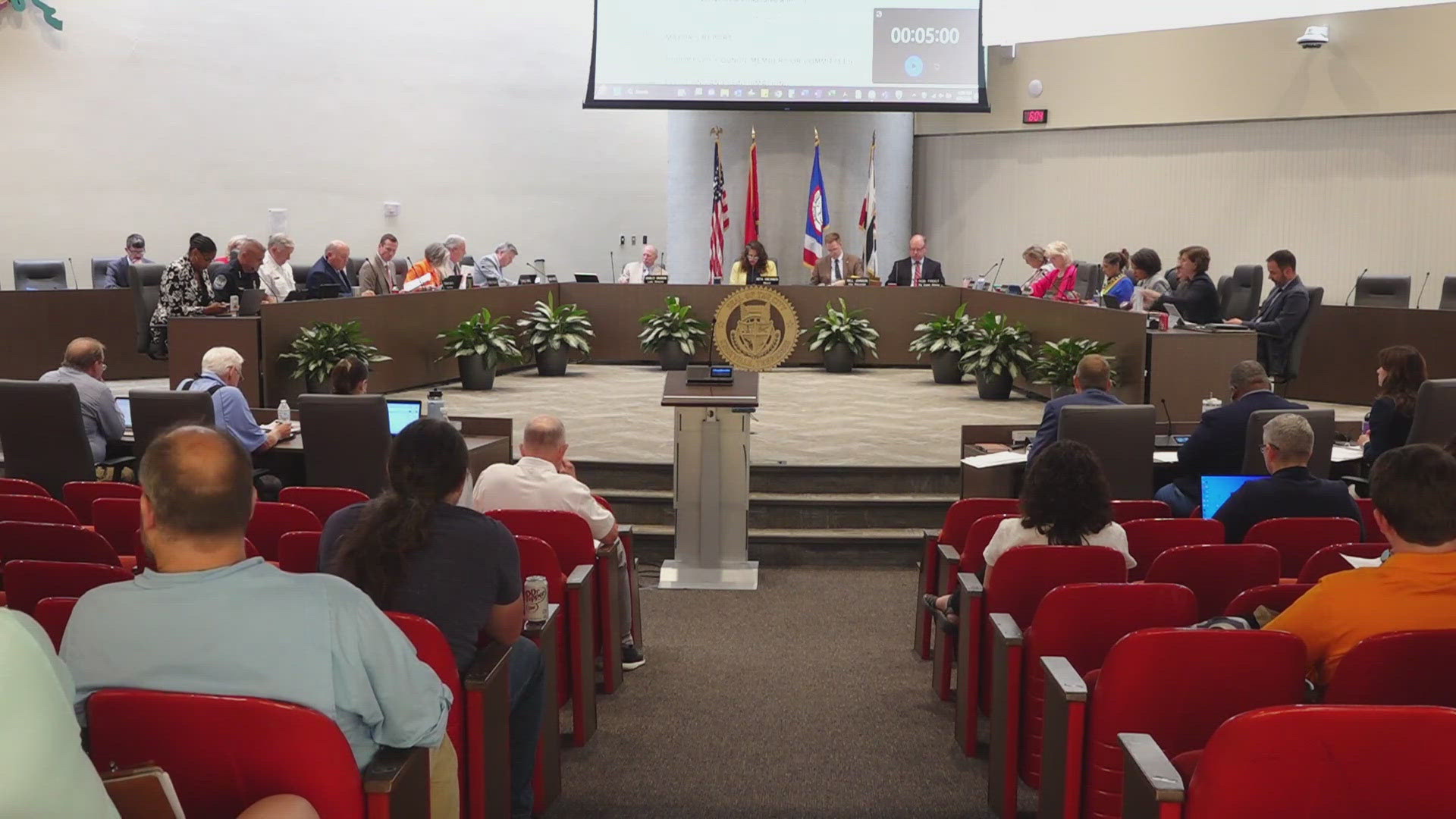KNOXVILLE, Tenn. — Knoxville City Council met Thursday to consider proposals aimed at preserving the way the city conducts its elections after a state law went into effect requiring the city to change its election structure.
The council passed a proposal on an emergency basis that is aimed at complying with state law while also preserving citywide elections. Voters will now need to consider that proposal in November.
When they go to the ballot, voters in Knoxville will be presented with two options: either implement district-limited voting or implement a citywide, at-large voting system with candidate residency requirements. The decision comes after Tennessee lawmakers passed a new law impacting Knoxville elections.
The new state law was condemned by the Knoxville vice mayor and most members of the Knoxville City Council as an overreach of state power. Governor Bill Lee signed the law in May 2023 and it took effect on Jan. 1.
Previously, when Knoxville voters headed to the polls during city primary elections, they were allowed to vote for candidates only in their district. During the city general elections, however, Knoxville voters could vote for candidates in every city council election, including districts outside the one they live in.
The law aims to put a stop to that style of voting and instead requires the city to follow how most state municipalities choose leaders, mostly by implementing district-limited elections.
At its last meeting, the Knoxville City Council needed to decide how to change its election rules to align with state law. There were effectively two competing proposals — one requested by Andrew Roberto and the other requested by Amelia Parker. A third proposal would have shifted the District 5 election schedule to align with the city's other districts.
On Thursday, an amended form of Roberto's proposal passed along with the proposal on District 5. However, Parker's proposal failed for lack of a second.
Roberto's proposal is aimed at preserving the way the city conducts its elections despite the new state law. If it goes into effect, voters citywide could participate in primary and general elections. He previously said online that it creates a hybrid at-large system for the city council, effectively making every seat an at-large seat that all voters in Knoxville could cast a ballot on. However, it would create "regional" at-large representatives and residency requirements for candidates.
At-large seats are not directly tied to a district and are instead elected by municipalities as a whole. The Knoxville City Council currently has three at-large seats. All eligible voters in Knoxville can cast ballots for candidates in those races, regardless of the districts they live in.
This style of voting has faced criticism for impacting minority voting rights. Black communities and communities of color may not have as strong a voice on city councils if all people in a city vote for candidates. By keeping elections district-limited, minority communities may be able to preserve a voice on city councils, according to the Municipal Technical Advisory Service.
Originally, Parker's proposal effectively protected some aspects of district-limited voting. However, after discussions at the last city council meeting, it was amended to remove a part of the proposal that said only voters within a city district could vote in a district election.
She said on social media that if all three proposals pass, "voters will see a regional at-large option, a proposal to move the 5th district election to the same year as the other district races, and a proposal to address a tiebreaker in the primary." She said if the city approved Roberto's proposal, the city would effectively establish an at-large voting system.
The city council effectively rejected Parker's proposal by lack of a second and approved Roberto's.
Previously, Roberto said his proposal was meant to preserve the "right of every Knoxville voter to vote for all nine members of city council." In a release, he pointed to the 2017 election of council member Seema Singh. It said if the city had district-limited elections, she would not have served.
"Our city’s recent election history reveals that district-only races have been decided by as few as 576 voters. That means 576 voters could decide the fate of about 200,000 Knoxville citizens," he previously said.
While election-related proposals on the city council agenda attracted the most attention, members also considered resolutions that extend the completion date for the Middlebrook Pike Advanced Traffic Management System Project to March 31, 2026 and another that would let the city put attachments on AT&T utility poles on Middlebrook Pike for almost $1.3 million.
Another resolution would increase the contract amount for the Old Broadway Sidewalk Project by around $440,000, a total of almost $3 million. The city also considered a resolution applying for a federal $1.8 million grant that addresses youth homelessness.

